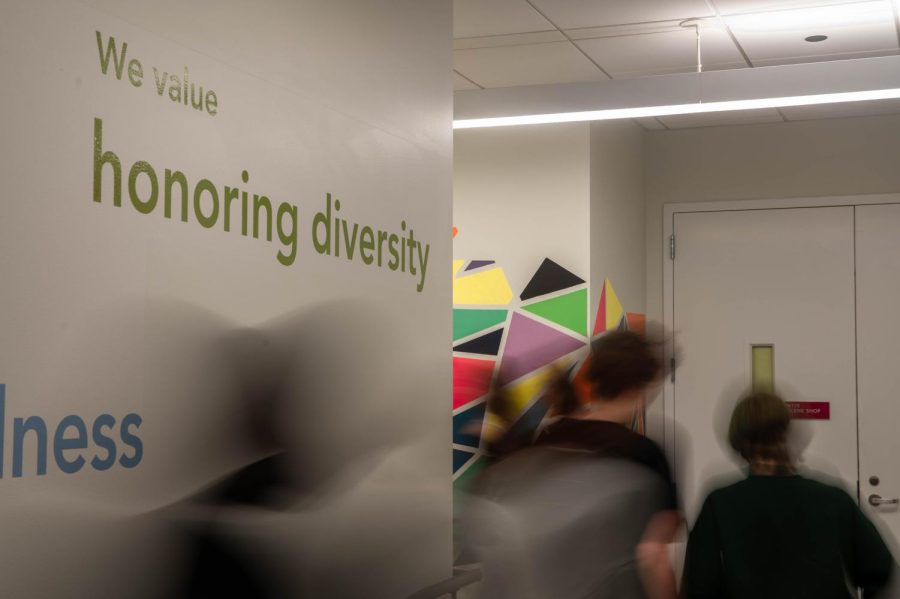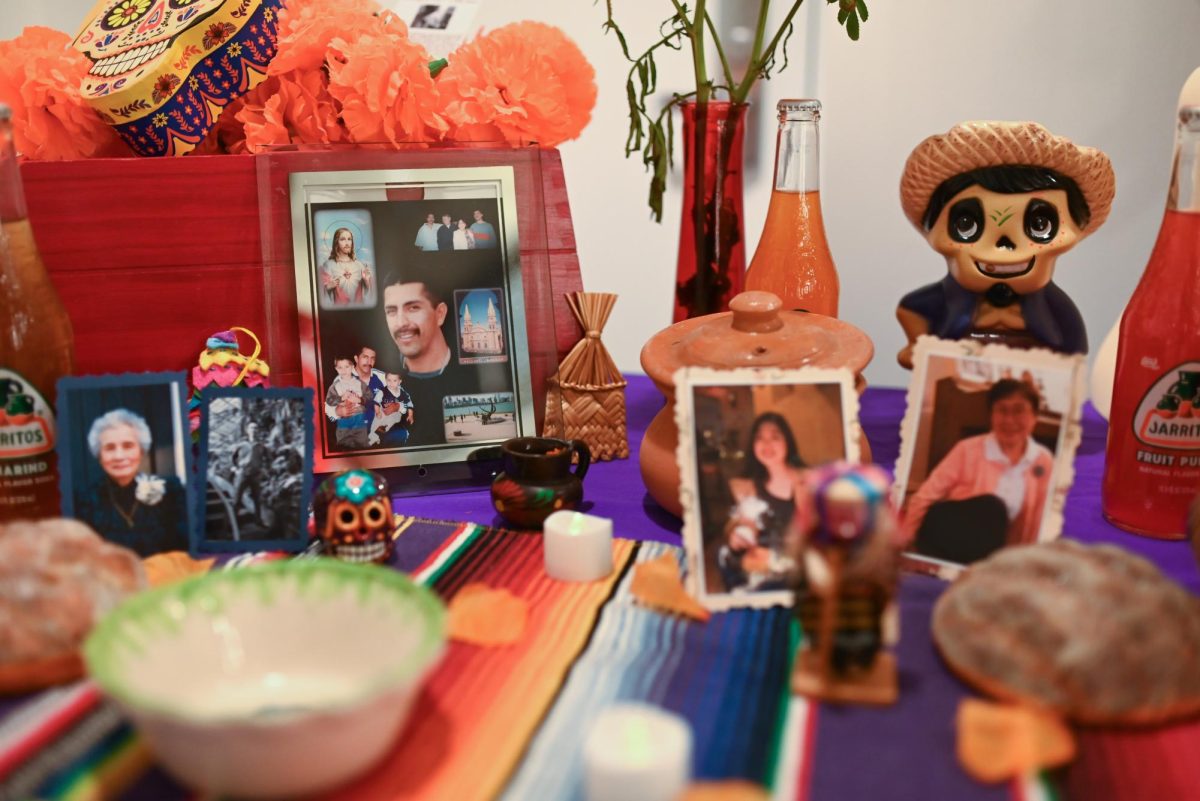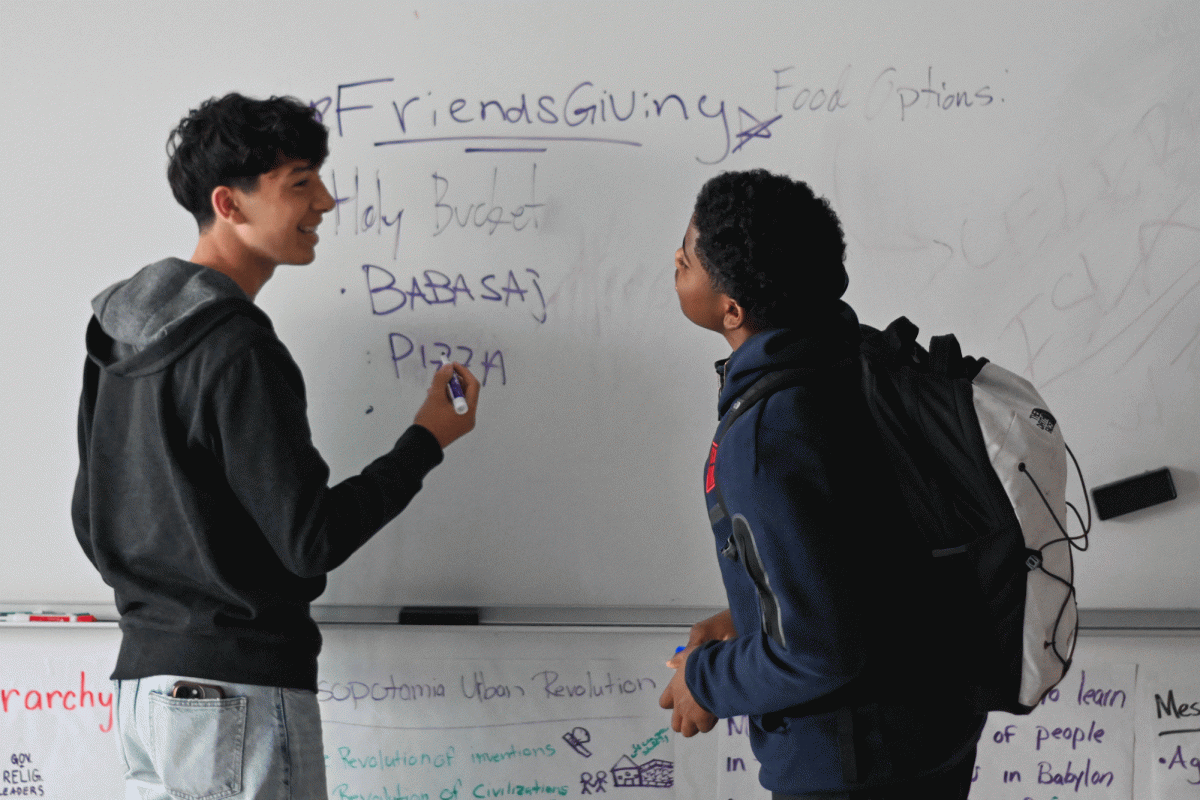Identity groups demand community address hate speech
A statement was released to Laboratory Schools Director Tori Jueds and U-High Principal Paul Beekmeyer by student members of five affinity clubs, demanding that they address hate speech at school and posted on social media.
November 16, 2022
Student members from five clubs representing students of color are demanding that Laboratory Schools Director Tori Jueds and U-High Principal Paul Beekmeyer address hate speech at school and posted on social media. Asian Students’ Association, Black Students’ Association, Latinos Unidos, Young Men of Color and Young Women of Color shared a statement with the Laboratory Schools administration Nov. 10.
Kiran Chinniah, president of Young Women of Color, said this statement’s creation was prompted by recent social media posts, but it aims to address public degradation of identities as a deeper topic.
“As a group of clubs, and as individual students at Lab, we are just kind of frustrated with seeing like the same thing happen over and over again, where it’s like someone posts stuff on social media, it blows through the school and everybody’s talking about it,” Kiran, a senior, said, “but then nothing really happens.”
In an email to the community on Nov. 11, Principal Paul Beekmeyer said students have a right to privacy as protected by the Family Educational Rights and Privacy Act.
“The absence of a community-wide email does not mean a lack of action, appropriate sanction, or abdication of our responsibilities,” Mr. Beekmeyer wrote. “We take all incidents extremely seriously, always balancing the impact on others with the fact that we work with children and teenagers.”
Zara Baig, Asian Students’ Association president, emphasized the need for a public administrative response while also protecting students’ privacy. She thinks students need clear communication from administrators.
“‘We do not condone this kind of behavior. We, as a Lab community, do not support this,’” Zara said. “We kind of need that.”
Zara, a senior, hopes the solidarity and unity that comes with a co-authored statement will help to change the school culture around diversity, equity and inclusion.
“I think it was really important that we pitch in our voice and also kind of reemphasize that us, as a group, do not condone any behavior of hate speech on social media,” Zara said. “I think there’s a really strong power that comes when all the affinity groups come together to write a statement about something.”
Moving forward, Kiran would like students who were affected by degrading posts to have a place where they feel respected and safe.
Kiran said, “[One of the goals is to] make sure that students that were affected by these posts — both recently and past posts — know that they have a place at U-High and that there are people who see them and hear them and respect them and acknowledge the impact and want to work to make sure that the U-High community is a safe one where they feel respected.”
Student Council is hosting a discussion to talk about provocation and escalation, relating to hate, and for students to voice concerns to community adults. The discussion will be Nov. 29 in Markovitz Theater.
Clubs’ full statement is below:
“Hateful expression is prohibited regardless of when, where, or how it occurred, for example, on or off campus, at any school-sponsored activity, on social media and in private messages, displays on clothing, books, phones, computers or backpacks.”
Dear U-High Faculty, Staff, Students, Parents, and Administrators,
“Coming from a school where I experienced racism daily, I was excited to come to Lab, but honestly, I’ve been disappointed,” said one new-to-Lab freshman regarding U-High’s promise of honoring diversity. Unfortunately, we have often felt that the school has fallen short of its promises. Too many times, we have faced comments from fellow students or adults that make us feel unwelcome. Whether spoken directly or posted on anonymous platforms, the impact is the same. U-High is not a community where we feel welcome and safe.
The issue of hate speech on social media is nothing new to U-High; it runs deeper than just one event. It feels as if every week there is a new offensive social media post. Each time students feel like they can’t speak up, and when they do, they feel dismissed by the administration. We are starting to feel this everyday struggle. Too often, teachers and the administration rely on marginalized students to bring issues to their attention. When the handbook needed to be updated to include gender-inclusive language, it fell on students to push for the necessary change. When teachers use problematic language in their courses, it is up to the students to correct and educate them. The U-High community has proven to not honor diversity and instead dismiss our concerns if we speak up and stand up for ourselves.
In addition to community members inappropriately sharing hate speech, a disappointing reality from these posts is that other community members have encouraged this behavior. Students have made these inappropriate jokes in the school halls, making an actively hostile environment for BIPOC and other marginalized students. This is unacceptable, as U-High community members, we need to do better. It should not be the sole responsibility of marginalized students to confront or “fix” these behaviors. Improving our actions as a community goes beyond refraining from antagonizing or encouraging inappropriate behavior. It includes speaking up when you hear or see something that doesn’t align with U-High’s values of diversity, equity, and inclusion. Being complacent doesn’t do anything for our community; it makes you complicit. If we want to see change, we all need to be active in the process.
We call on Mr. Beekmeyer and Ms. Jueds to address this issue head-on. It is time we start working proactively, rather than reactively. We want to see you address the U-High community when events like these happen. Right now, your message regarding hate speech at U-High is unclear. The handbook says one thing, but your actions or lack thereof say another. As we move forward, we hope your message will be clear. Every student at U-High deserves to be here and to feel welcome and safe at their school. There is no room for hate speech at Lab.
To students who have experienced hate speech, at any point in time; we hear you, we see you, and you matter. This is OUR community and we have a right to be respected.
Signed,
Young Women of Color, Young Men of Color, Asian Students’ Association, Black Students’ Association, and Latinos Unidos













Laura Doto • Nov 18, 2022 at 9:27 am
“To students [and faculty and staff members] who have experienced hate speech, at any point in time; we hear you, we see you, and you matter.”
To the Club members — Thank you for calling on members of our community to acknowledge the adverse impact of actions that are not aligned with Lab’s mission statement.
Separate from the decisions and consequences of individual disciplinary action, which should remain confidential, it seems to me that every member of our community — administrator, faculty, parent, student or staff — has an inherent obligation to uphold the ideals reflected in our mission. This should include statements that reinforce the welcome and the value of diverse voices AND acknowledge the adverse impact hateful expression has on historically-marginalized populations.
I hear you, I see you, and I will continue to work with and for you.
Sunny Neater • Nov 17, 2022 at 10:59 am
This is an amazing, smart, and powerful story and letter. Keep pushing back against the status quo, kids. I’m standing with you.